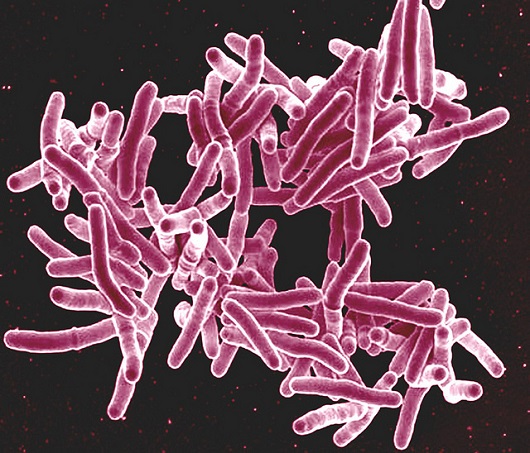TB drug trial paves the way for future progress

A team of researchers, including academics from the University of St Andrews School of Medicine, have today released the results one of the largest and most rigorous tuberculosis (TB) drug trials ever conducted in the modern era.
The current treatment for the nearly nine million people newly diagnosed with TB each year requires a minimum of six months of therapy, which often has significant side effects.
The Phase 3 clinical trial called REMoxTB tested whether substituting moxifloxacin for one of the existing first-line TB drugs (isoniazid or ethambutol) could shorten treatment for drug-sensitive TB from six to four months.
The results, presented today at the 54th Interscience Conference on Antimicrobial Agents and Chemotherapy (ICAAC) in Washington and published in the New England Journal of Medicine found that the experimental treatment killed TB bacteria faster than the standard course of treatment but that this effect was not enough to allow treatment shortening to 4-months .
The trial confirmed the safety of daily moxifloxacin over four months of therapy. Researchers concluded that the safety of moxifloxacin, combined with its greater activity against TB in the early stages of treatment, supports the continued clinical testing of moxifloxacin as a component of other novel regimens.
TB killed 1.3 million people in 2012—one person every 25 seconds. The length of today’s TB treatment makes it difficult for many patients to complete therapy. Failure to complete treatment is a major driver of the emergence of multi-drug resistant TB (MDR-TB), which requires substantially longer, more complicated and expensive treatment.
Stephen Gillespie, Sir James Black Chair of Medicine at the University of St Andrews and the ReMoxTB study’s chief investigator, said:
“The REMox trial was among the most rigorous TB drug trials ever conducted in the modern era of TB treatment and among the largest ever conducted for a new TB treatment. Although the regimen we studied wasn’t quite sufficient to reduce TB treatment time by our two month target, the trial brought us a significant step closer.”
“REMoxTB succeeded in showing that that high-quality clinical trials with clear, unequivocal results can be conducted in resource-poor regions where TB is endemic and also in paving the way for future TB trials, especially those that might include moxifloxacin as part of the regimen.”
The global study brought together results from across 50 trial sites on three different continents, and provided a wealth of data that gives researchers insights how to identify and distinguish between patient relapses and re-infections, and how the severity of infection correlates with treatment outcome.
The groundwork laid by conducting REMoxTB will also help save time and money in future TB trials. Through the trial, the REMoxTB consortium has established protocols, methodologies, networks of researchers, and efficiencies to streamline TB research. Importantly, the learnings from REMox has led to regulators reconsidering trial designs, helping to lower the hurdles and expense for proving the value of new regimens.
Gillespie concluded:
“The quality and amount of the data from this trial will advance the entire TB research field, and improve future trials by allowing them to enrol fewer patients, making them shorter and less expensive to conduct.”
The article, ‘Four-Month Moxifloxacin-Based Regimens for Drug-Sensitive Tuberculosis’, can be accessed here.
ENDS
NOTES TO NEWS EDITORS
The REMoxTB study was a collaboration between the TB Alliance, Bayer HealthCare AG, University College London (UCL) Centre for Clinical Microbiology, the Medical Research Council Clinical Trials Unit at UCL and the University of St Andrews. It enrolled 1,931 patients at 50 sites in nine countries (Kenya, Mexico, Tanzania, South Africa, China, India, Thailand, Malaysia and Zambia).
The trial was funded by the Australian Department of Foreign Affairs (DFAT), Bill & Melinda Gates Foundation (BMGF), the Directorate General for International Cooperation of the Netherlands (DGIS), the European and Developing Countries Clinical Trials Partnership (EDCTP), Irish Aid, the UK Department for International Development (DFID), the US Agency for International Development (USAID), and the US National Institutes of Health AIDS Clinical Trial Group (ACTG).
Issued by the University of St Andrews Press Office, contact 01334 462530 or email [email protected]
Category Research